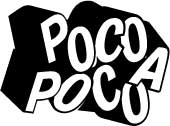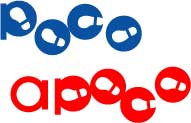 The business manager called me and explained that the Polish business could not be ordered.
The business manager called me and explained that the Polish business could not be ordered.
Soon after, I didn’t return to the factory, but stayed in the export department to do overseas sales.
Regarding work, I was in charge of shipping service parts, not only in South Africa but also in Europe.
Then, I had to contact overseas in English, so I started to study export-related correspondence in earnest. As the number of customers coming to Japan from overseas increased, I had to study English conversation in earnest.
I had a lot of hard days with improving my English, exporting, and knowing about medical device products.
And a year later, I was in charge of the Latin American group, mainly Brazil.
At that time, I was using teletypes to communicate with foreign countries.
To do that, I had to first write a correspondence, teletype it, and make a paper tape. Next, punch holes in the paper tape with a puncher. In the unlikely event that I made a typo, I had to redo that part and replace it with the wrong part.
So I couldn’t fix the tape quickly if I couldn’t understand what was written by looking at the punched holes in the paper tape.
However, as a computer engineer, I could easily fix this.
Latin America is on the other side of the globe, so if I sent a communication overseas in the middle of the night, I would get a reply the next morning, which was convenient for my work. At that time, the only local subsidiaries of overseas medical devices were North America, the Netherlands and Brazil.
That is, the overseas base in Central and South America was Brazil.
There were four Japanese expatriates in Brazil, so the correspondence was in Roman letters.
I thought that if I had been in the export department for three years, I would be a little full-fledged, but due to various issues, I couldn’t do a full-fledged job even after three years.
Since Brazil was aiming for domestic production, import restrictions on parts were very strict.
When I was in charge of Brazil, the biggest problem was the issue of import restrictions in Brazil.
Even if an order was received from Brazil and arranged at the factory, it could not be shipped without an import license in Brazil.
The factory complained about getting rid of these large inventories, and Brazil demanded that the Tokyo headquarters ship those cargoes without an import license. In other words, they in Brazil demand that we ship the parts in the finished X-ray machine.
This was correct, smuggling in Japan and smuggling in Brazil.
It was a job that no one wanted to do.
So I made a plan.
① First, at the factory, when shipping the X-ray equipment, the parts in stock are included together. All parts are listed in the packing list.
② At the time of customs clearance in Japan, declare all X-ray equipment and parts. This is not illegal.
③ On the other hand, as a customs clearance point for Brazil, make a packing list that can be declared as a set of X-ray equipment and send it by another mail.
What kind of customs clearance procedure is done in Brazil is a matter for Brazil. That is, because Brazilian customs are a world of bribes, they can do anything.
I made such a scenario and proposed it to the section chief.
However, I prepared a sentence that the section chief would take all responsibility for the performance of the work and requested a signature.
Then the chief said.
“Mr. Sato, isn’t this illegal?”
I answered,
“It is not illegal in Japan, but there is a risk of it being illegal on the Brazilian side.”
“Mr. Sato, are you really okay?”
“If the section chief does not decide, this story will not proceed.”
I asked him to sign.
This story became a big topic at the factory site.
It was because a large number of parts that were in stock were finally released. Moreover, some people were wondering because the packaging was different than usual.
When I went to the factory site
“Mr. Sato, isn’t this illegal?”
I said.
“You shouldn’t say it’s illegal, because we never bother you.”
When I said that, everyone was silent. They were just office workers who were only interested.
In this way, the cargo arrived in Brazil safely, and customs clearance was completed safely. Perhaps the customs officials involved were holding a fair amount of money.
I was very grateful to the president of the Brazilian subsidiary over the phone.
I also felt like I had done one important job.
However, a month later, I was surprised to see the newspaper.
It was written that a large number of undeclared parts were found in Hitachi’s freight train in Brazil!
Hitachi was exporting electric locomotives and other railroad trains to Brazil. Parts subject to import restrictions were put in the train and exported.
After reading this article, I was so surprised that I couldn’t express it.

横浜こぼれ話は筆者の佐藤栄次が随筆や意見や考えを書いておりますので、一度見に来てください、
%d人のブロガーが「いいね」をつけました。




